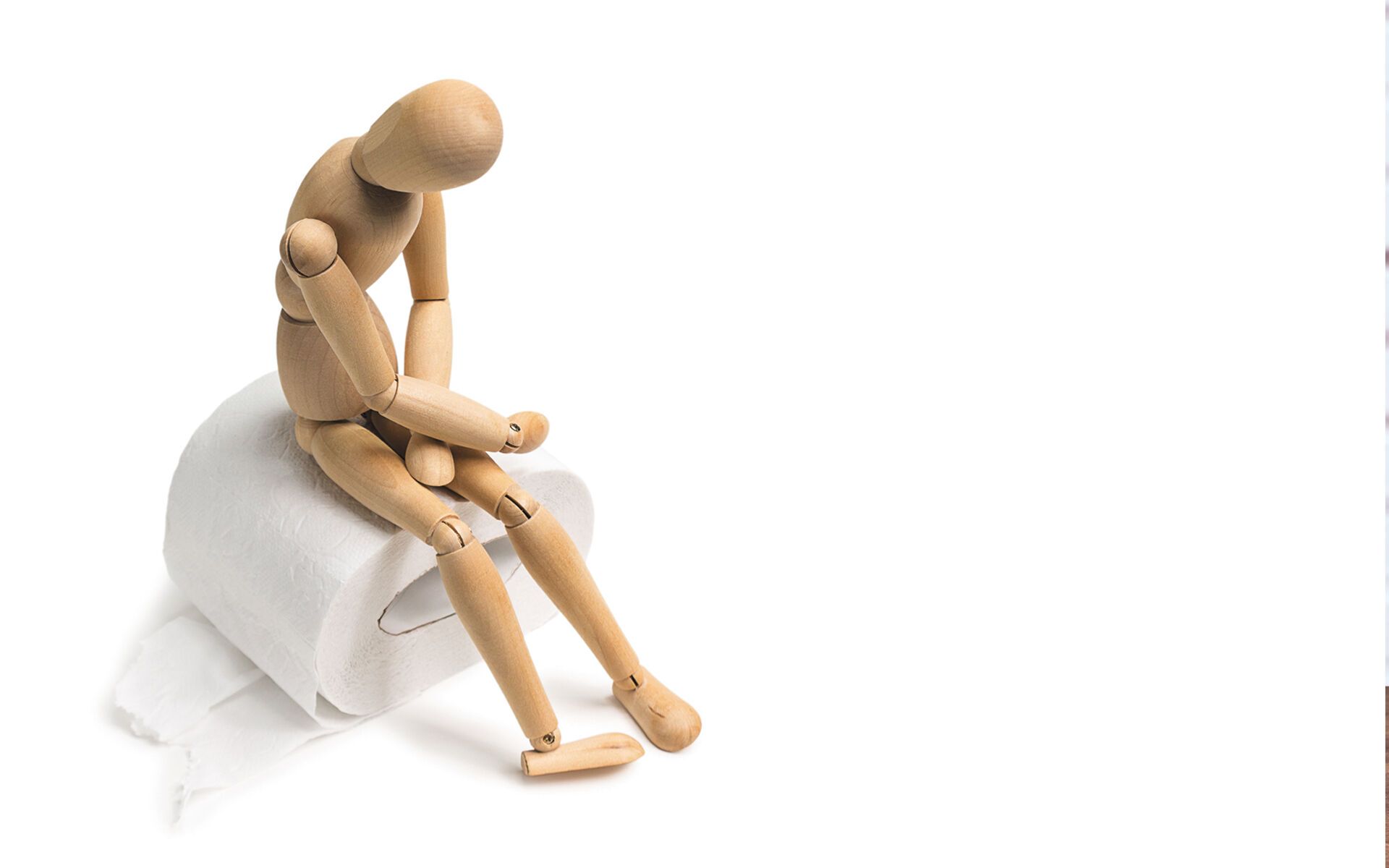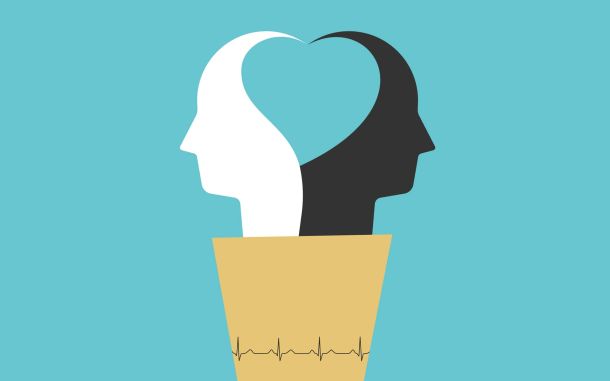Imbalance in Bowel Movement

In This Article
-
Digestion is a complicated process, and when nerves or muscles in any portion of the digestive system do not function with their normal strength and coordination, a person develops symptoms related to motility problems.
-
Diarrhea may cause dehydration and malabsorption, which can be life-threatening if untreated. Dehydration is particularly dangerous in children, older adults, and those with weakened immune systems.
-
Constipation on its own can be uncomfortable, but it typically is not life threatening. However, it can become a problem if it is a symptom of a more serious underlying condition, such as colorectal cancer, or if it starts to cause further damage.
A balanced lifestyle is a must for a healthy biological, mental, and spiritual life. We need balance in everything: eating, speaking, working, sleeping, discipline, and even in love. Working extra hours incessantly may cause a mental breakdown and weaken our family ties; sleeping too much (unless due to a health problem) may result in an unproductive daily schedule and a heavy head; speaking too much may cause us to say things that can hurt others. Prophet Muhammad, peace be upon him, said, “It is enough falsehood for someone to speak of everything he hears.”
Conversely, not speaking at all, i.e., suppressing one’s worries and thoughts inside may cause other psychological problems. Or starving oneself to lose weight may lead to health disorders like anorexia nervosa. In short, a life that is experienced in the extremes, be it in diet or in social relations, is prone to be a very difficult one. In this article, we will focus on two digestion problems, one of the causes of which is imbalanced food consumption.
Gastrointestinal motility refers to the movement of food from the mouth through the throat, esophagus, stomach, small and large intestines, and out of the body. This system is responsible for digesting food, and it starts working the moment you look at the food.
Digestion is a complicated process, and when nerves or muscles in any portion of the digestive system do not function with their normal strength and coordination, a person develops symptoms related to motility problems.
Diarrhea
Diarrhea is a common problem, and its main symptom is passing loose, watery stools three or more times a day. Each year, an estimated 2 billion cases occur globally and around 1.9 million children under the age of five die from diarrhea every year, mostly in developing countries. This makes it the second leading cause of death in this age group (mostly after cardiovascular disease).
People with diarrhea may also have one or more of the following symptoms including an urgent need to use the bathroom, cramping, loss of control of bowel movements, nausea, and pain in the abdomen. People with diarrhea caused by some infections may also have symptoms such as bloody stools, fever and chills, light-headedness and dizziness, and vomiting.
The cause of diarrhea is generally not identified. The most common cause of diarrhea is a virus that infects the bowels. Other possible causes of diarrhea can include infection by bacteria, infections by other organisms and pre-formed toxins, eating foods that upset the digestive system, allergies and intolerances to certain foods (celiac disease or lactose intolerance), medications, radiation therapy, and poor absorption of food.
Antibiotics can change the balance of bacteria normally found in the intestines. When this happens, your colon can become overrun by bad bacteria causing inflammation of the colon’s lining. Antibiotic-associated diarrhea can begin any time while you’re taking the antibiotic or shortly thereafter.
Diarrhea may cause dehydration and malabsorption, which can be life-threatening if untreated. Dehydration is particularly dangerous in children, older adults, and those with weakened immune systems.
Although most cases of diarrhea are relatively brief and mild, sometimes diarrhea can lead to serious complications. Diarrhea can cause dehydration when your body loses large amounts of water, electrolyte imbalance (loss of sodium, potassium, and magnesium that play a key role in vital bodily functions), and kidney failure (not enough blood/fluid is supplied to the kidneys). When you have diarrhea, you lose water and electrolytes along with stool. You need to drink plenty of fluids to replace what’s lost. Dehydration can become serious if it is not addressed adequately.
Diarrhea can be prevented by avoiding infections with good hygiene habits such as regularly washing the hands with soap (especially before preparing food, eating, and after using the bathroom), having good sanitation systems (wastewater and sewage), getting vaccinations (rotavirus vaccine in childhood), storing food properly, and watching what you eat and drink when traveling.
When you have an acute case of diarrhea, you can often take care of it without needing any medication. Several things you can do to care for diarrhea include drinking plenty of water and other electrolyte balanced fluids (like diluted and pulp-free fruit juices, broths, sports drinks, and caffeine-free sodas), changing your diet (specifically eating potatoes, rice, noodles, banana, applesauce, white bread, etc.), and cutting back on caffeine.
Constipation
Constipation is when a person has uncomfortable or infrequent bowel movements. Constipation happens because the colon absorbs too much water from waste (stool), which dries out the stool, making it hard in consistency and difficult to push out of the body. About 4 million people in the United States have frequent constipation. Constipation is the most common gastrointestinal complaint, resulting in 2.5 million doctor visits annually in the US.
Symptoms of constipation include having fewer than three bowel movements a week, dry, hard and/or lumpy stool, difficulty or pain when passing stool, stomachache or cramps, feeling bloated and nauseous, and feeling that you haven’t completely emptied your bowels after a movement.
There are many causes of constipation because of lifestyle choices, medications, medical conditions, and pregnancy; these include eating foods low in fiber, not drinking enough water, lack of exercise, stress, ignoring the urge to have a bowel movement, medications (strong pain medicines, some antidepressants, antacids, etc.), medical and health conditions (underactive thyroid gland, diabetes, irritable bowel syndrome, intestinal obstruction), abuse of laxatives, and changes in habits or lifestyle, such as travel, pregnancy, and old age.
Most often, constipation can be treated through dietary and lifestyle changes, which relieve symptoms and help prevent the condition. Treatment may include diet modifications like having beans, whole grains, bran cereals, fresh fruits and vegetables to add fiber to the diet; and limiting foods such as ice cream, cheese, meat, and processed food, which contain little or no fiber, laxatives, and eliminating or changing medication. Drinking two-to-four extra glasses of water a day, trying warm liquids, especially in the morning, adding fruits and vegetables to your diet, eating prunes and bran cereal, exercising most days of the week, and not ignoring the urge to have a bowel movement are suggested treatments of constipation.
Constipation may be dangerous if it has lasted more than two weeks, there is blood in your stool, lose weight even though you’re not trying to, severe pain with bowel movements, or the size, shape, and consistency of your stool has changed dramatically.
Constipation on its own can be uncomfortable, but it typically is not life threatening. However, it can become a problem if it is a symptom of a more serious underlying condition, such as colorectal cancer, or if it starts to cause further damage. Damages that can arise as a result of severe constipation includes rectal bleeding after straining, anal fissure—which is a small tear around the anus—symptomatic hemorrhoids (piles, which are swollen, inflamed blood vessels in the anus), and fecal impaction (which occurs when dried stool stagnates and collects in the rectum and anus, potentially leading to a mechanical obstruction).
The human digestive system works in a fine balance. In cases where the digestive system works too quickly, diarrhea occurs, and we cannot benefit enough from the food that we eat. We lose water and electrolytes from the body, which causes the deterioration of our metabolism. On the contrary, if the digestive system does not work at a sufficient speed, constipation occurs and causes severe abdominal pain and bloating. In this case, toxic substances accumulating in the body can cause harm.
References
- https://www.cdc.gov/healthywater/global/WASH.html?CDC_AA_refVal=https%3A%2F%2Fwww.cdc.gov%2Fhealthywater%2Fglobal%2Fdiarrhea-burden.html
- https://www.hopkinsmedicine.org/health/conditions-and-diseases/diarrhea
- https://my.clevelandclinic.org/health/diseases/4059-constipation
- Muslim, Muqaddima 5









